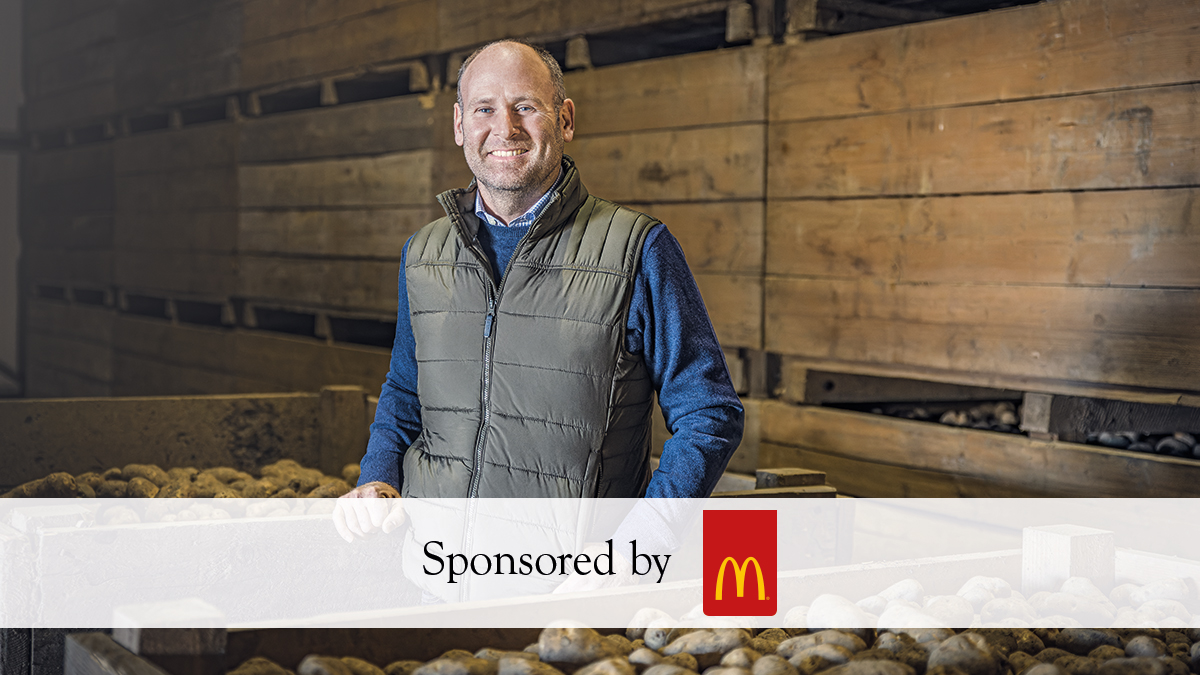The food and drink industry is the UK’s largest manufacturing sector by turnover, bigger than the aerospace and automotive industries combined. Last year, the government published its new Food Strategy, which sets out a vision to create a sustainable and affordable food sector that will secure high-quality produce for generations to come. From the farms that produce fresh and delicious ingredients to the restaurants that bring it to your table, everyone across the industry has a role to play in making this vision a reality.
In order to mitigate sharp rises in the price of essentials like fuel and animal feed, the industry is required to continuously adapt to make sure that producing the food we eat is profitable, viable for the long-term, and reduces the impact on our environment.
One of the businesses working hard to support the future of the food and farming industry is McDonald’s. It works closely with more than 23,000 British and Irish farmers to provide quality ingredients for the menu items that it serves to over four million customers across the UK and Ireland every day.
David Swinbank is a potato grower who works with his brother Watson on their family farm in Richmond in the Yorkshire Dales. He is one of many British growers working with food company McCain to supply McDonald’s with quality potatoes for its fries.
‘The perfect fry is the product of weeks of planting, and months of harvesting,’ says David. ‘We work all year round to ensure that the six carefully chosen varieties of potato approved to be McDonald’s fries are the best quality they can be, before they then go on to be washed, peeled, and cut into fries. Those that don’t make the grade, often because they’re too small, may be used for McDonald’s hash browns if they’re the right variety, or in other McCain products. We try to make sure nothing goes to waste.’
In line with the vision set out by the National Food Strategy, McDonald’s is looking to drive positive change across its supply chain, including working with farmers to embrace innovative new methods of production that will help improve sustainability. Its partnership with McCain has led to initiatives such as the £1 million Sustainable MacFries Fund, launched in 2020, enabling growers to work with industry experts to conduct research, as well as investing in equipment and technology, to help improve water management and soil quality on their farms.
Through the fund, David was able to invest in a tiller which breaks up hard, compact soil to make it looser, which can then be used for planting. This helps to improve soil quality by making the planting process more efficient and minimising soil disturbance, creating a more reliable crop that helps boost profitability. More broadly, the findings from research carried out as part of the fund will be shared with growers to further support knowledge exchange.
‘The partnership between McCain and McDonald’s provides access to the innovation that we and the wider supply chain need if we’re going to continue to provide quality ingredients to businesses like McDonald’s. Innovation also helps us overcome the challenges that being a farmer in the current climate brings,’ says David.
In this unpredictable environment, a strategy that secures the UK’s food supply for the future, while also meeting our sustainability goals, is essential.
But, if they are going to be achieved, farmers like David and businesses like McDonald’s must work together to help secure an innovative, reliable and more sustainable food system that provides quality ingredients for years to come.
This article is free to read
To unlock more articles, subscribe to get 3 months of unlimited access for just $5






Comments
Join the debate for just £1 a month
Be part of the conversation with other Spectator readers by getting your first three months for £3.
UNLOCK ACCESS Just £1 a monthAlready a subscriber? Log in